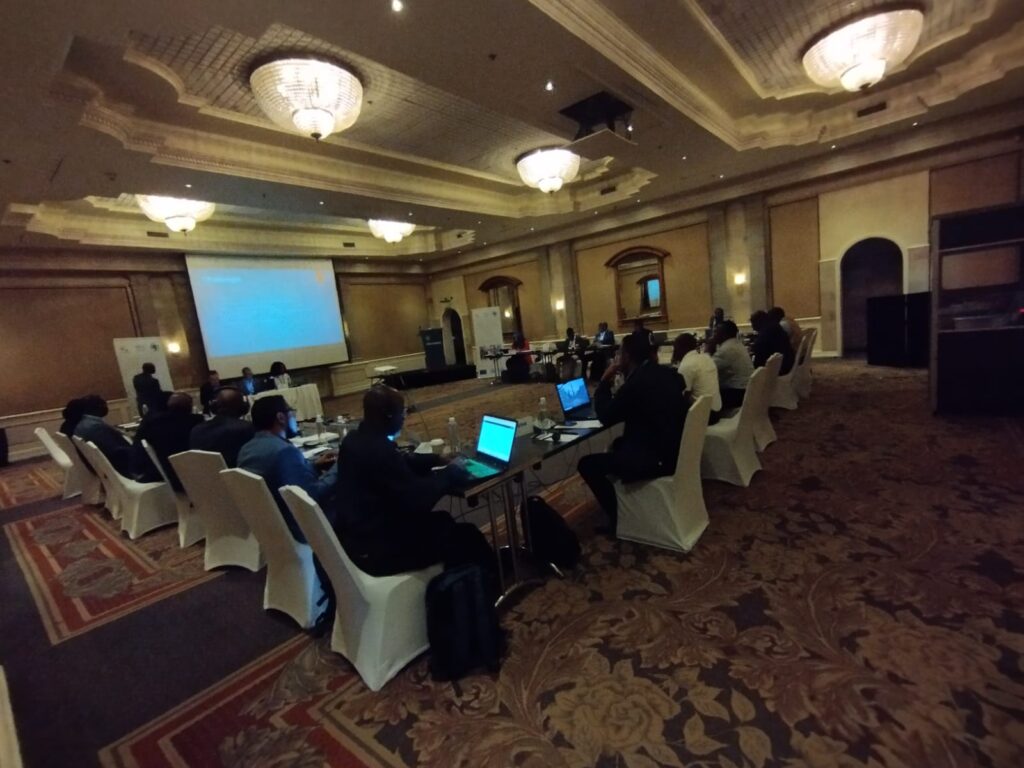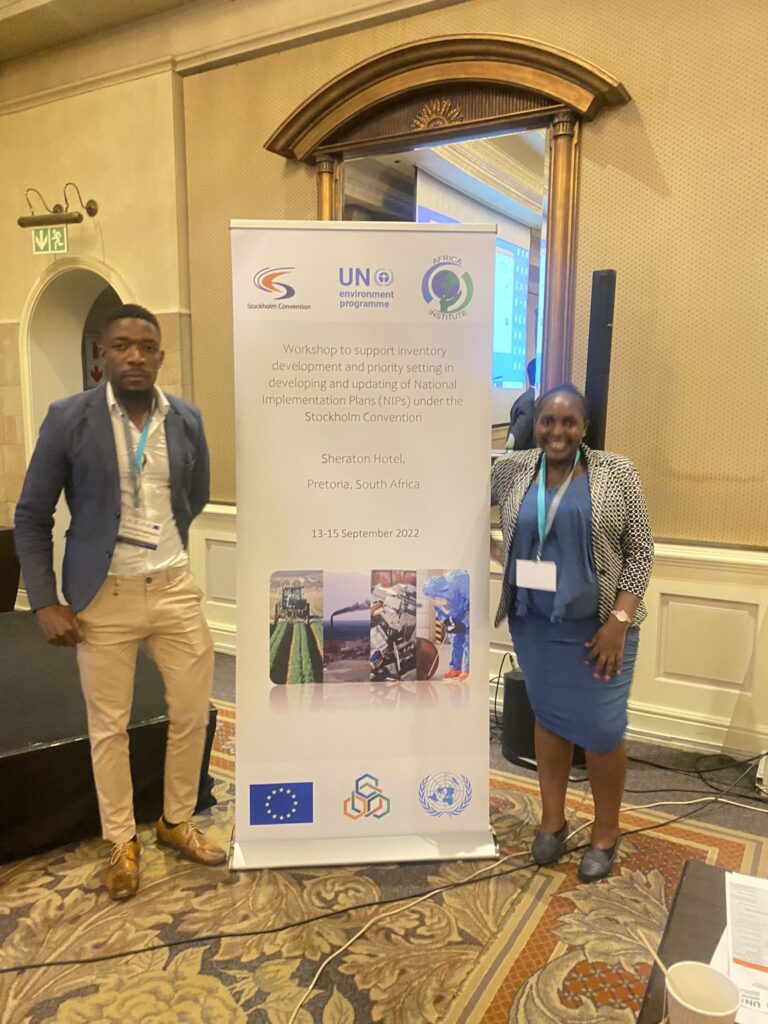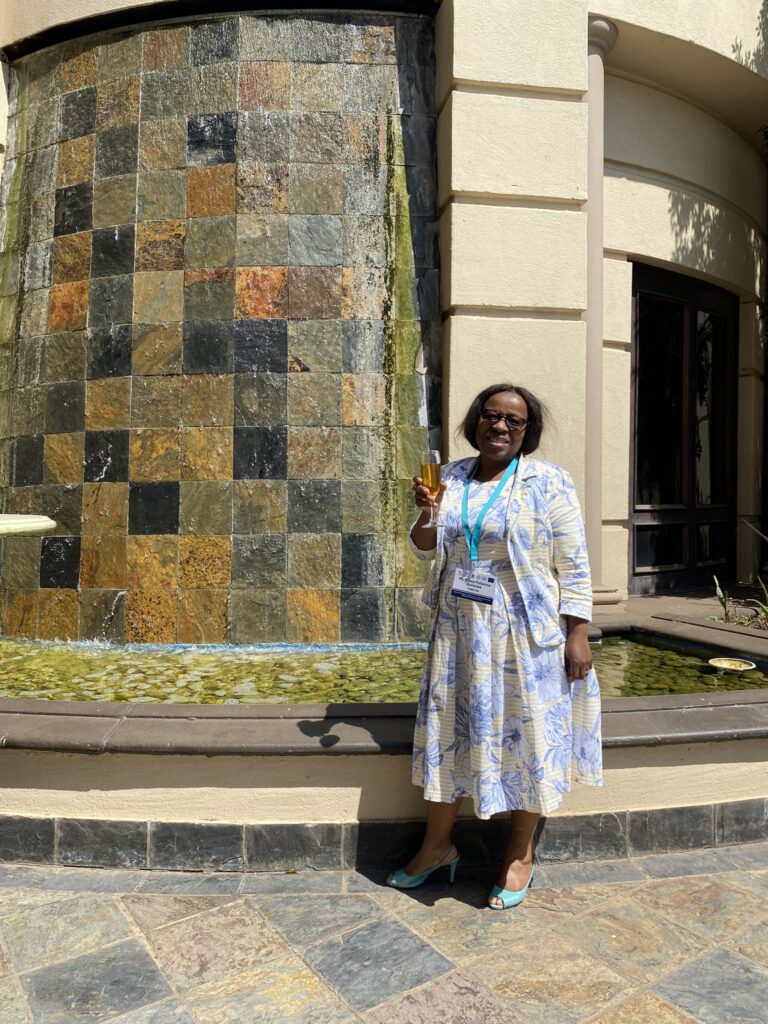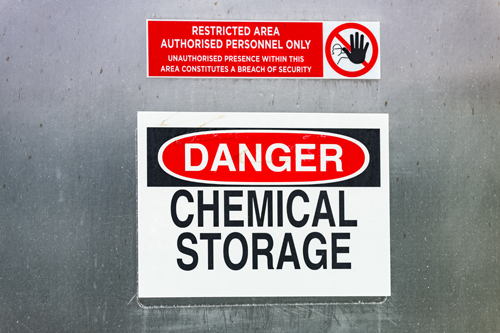
Countries:Botswana, Burundi, Cameroon, Cote d’Ivoire, Eritrea, Eswatini, Gambia, Madagascar, Mauritius, Morocco, Senegal, Seychelles, South Africa, Tanzania, Togo, Tunisia and Uganda
Highlights: The Africa Institute in partnership with the Secretariat of the Stockholm Convention on Persistent Organic Pollutants (POPs) (a Multilateral Environmental Agreement (MEA) administered by the United Nations Environment Programme (UNEP)) held a workshop on the update of National Implementation Plans (NIPs) for POPs listed after the entry into force of the Stockholm Convention. Stockholm Convention focal points of the respective countries were in physical attendance, other attendees joined online.
Dr Molapisi, the Executive Director of the Africa Institute, facilitated the meeting. Mr Suman Sharma, who is from the Secretariat of the Basel, Rotterdam and Stockholm conventions, was also in attendance in Pretoria. Dr Roland Webber who does POPs consulting in Germany led out the workshop. Dr Webber has assisted and worked on numerous projects in this industry with both UNEP and other stakeholders.
Content: The workshop was divided into four (4) sessions that addressed different topics.
- Session I: NIP Development, Review, and Updating. This covered topics including NIP development and implementation: an opportunity to promote synergies on chemicals, plastic & waste management at national level; the process for developing and updating national implementation plans (NIPs); POPs listed after the convention came into force and exemptions; POPs Review Committee; Guidance documents to support development and implementation of the SC and common inventory approaches; and country experiences in NIP update and implementation
- Session II: Inventory considerations for PFOS/PFOA/PFHxS and PBDEs/HBCD/HBB. This session covered topics including the introduction to PFOA, PFOS, PFHxS and related substances; developing inventories for PFOS and PFOA; Experiences & gaps on PFOS assessment – how to assess PFOA; introduction to PBDEs, HBB and HBCD; compiling a national PBDE inventory (E-waste & plastic); compiling a national PBDEs and HBCD inventory (other uses); and POP-BFR assessment in the countries
- Session III: Inventory development for Short-Chain Chlorinated Paraffins (SCCPs), PCNs and PCB. This session covered topics including experiences with PCB management projects and consequences for future PCB management activities in Africa; introduction to SCCP, PCBs and PCNs in open applications and synergies in the assessment; establishing an Inventory for SCCPs and Assessing Related “Open Uses” of PCBs and PCNs; and establishing a preliminary SCCP and MCCP inventory in Nigeria; and SCCP (and open PCB/PCN use) assessment in the countries
- Session IV: Monitoring of POPs in Africa supporting the NIP update. This session covered topics including some outcomes of the Global Monitoring Plan – from Science to Action; monitoring of PBDEs in Nigeria e-waste and dump sites; monitoring PBDD/PBDF in e-waste plastic in Nigeria; monitoring of PBDEs and PBDD/PBDF in toys in Africa; monitoring of PFAS in Africa; global monitoring of POPs in eggs around pollution sources; and strengthening POPs monitoring in Africa
Objectives:
- To enhance the capacity of the Parties to the Stockholm Convention, particularly developing countries and countries with their economies in transition related to review and update their NIPs
- To enhance the capacity of the Parties to the Stockholm Convention related to the developing of the inventories of the POPs, as listed by the Conference of the Parties (COP) to the Stockholm Convention at its 2017 meeting, and the national priority setting as part of the review and of the updating of NIPs
- To disseminate the inventory guidance developed for the POPs, as listed by the COP in 2017, and the step-by-step method on how to use these guidance
Organisers: The meeting was organized, thanks to Secretariat of the Stockholm convention, the generous financial contribution of the European Union, and the Africa Institute.





















